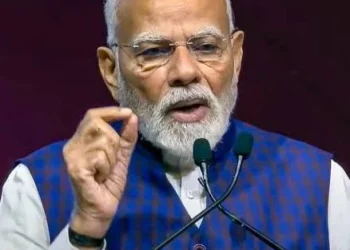Following RSS chief Mohan Bhagwat‘s worries about the revival of multiple temple-mosque conflicts in the nation, an RSS-connected publication adopted a contrasting viewpoint, stating that understanding the true history of contested locations and buildings was crucial for “civilisational justice”.
In its most recent issue, the Organiser featured a cover article on the Sambhal mosque dispute in Uttar Pradesh. The editorial noted that a temple “stood” where the Shahi Jama Masjid is located, contending that comprehending the “reality” about religious sites that were historically attacked or destroyed was essential.
The progress occurs amid a surge of petitions in courts requesting surveys of Muslim mosques and shrines across various regions of the country, from Sambhal’s Shahi Jama Masjid to Ajmer Dargah. The Supreme Court has mandated a temporary suspension of new temple-mosque lawsuits.
The RSS editorial, on the other hand, fails to address Mohan Bhagwat’s recent comments regarding temple-mosque conflicts. During an event in Pune, Bhagwat remarked that certain individuals, after the Ram Temple was built, believed they could emerge as “leaders of Hindus” by stirring up these controversies.
Also read: Opinion! Did Russian missile play a role in crash of Azerbaijan passenger plane?
“A truthful understanding of history and itihasa is vital for achieving civilisational justice, promoting peace and harmony among all communities. The time is ripe to address this quest for civilisational justice. Babasaheb Ambedkar tackled the root of caste-based discrimination by providing constitutional remedies to eradicate it,” the Organiser editorial said.
The magazine suggests that recognizing the historical reality and distinguishing Indian Muslims from previous acts of iconoclasm and religious dominance could lead to a possible route for peace and communal harmony.
The article stated that restricting access to justice and the truth solely to appease certain colonised elites and pseudo-intellectuals who want to maintain a faulty interpretation of secularism would only exacerbate radicalism, separatism, and animosity.














